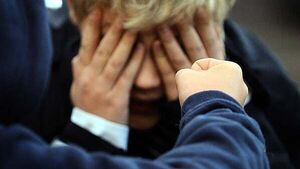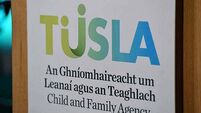Minority of young bullying victims tell an adult, research suggests

By Jonathan McCambridge, PA
Only four in 10 13-year-olds who experience bullying-type behaviour tell an adult about it, research has suggested.
The findings, published by the Economic and Social Research Institute (ESRI) in partnership with the Department of Children, Disability, and Equality (DCDE), used Growing Up in Ireland (GUI) data to examine the experience of bullying among nine- and 13-year-olds, both in and outside school.
The research also states that four in 10 nine-year-olds said a child or adult had picked on them in the past year.
When asked directly about being bullied, 8 per cent of 13-year-olds indicated they had been bullied in the previous three months.
But when given a list of bullying experiences (such as being hit, being called names or excluded), 62 per cent of 13-year-olds had experienced at least one of the behaviours on one or more occasions in the past three months, while 37 per cent experienced at least one type of behaviour repeatedly.
The report said certain types of behaviour, especially online or name-calling, are more likely to be labelled as bullying by young people than other types, particularly being excluded by others.
It also found that those who were picked on at age nine are more likely to be bullied at age 13.
The research found that 13-year-olds with a disability, those who are lesbian, gay, bisexual or questioning and those who are overweight are more likely to have been bullied.
It found that girls are less likely to be hit but more likely to experience being socially excluded or called names than boys. Girls are also more likely to have had nasty things said to or about them online or by text.
The research said young people are more likely to tell someone about hurtful material posted online than other types of behaviour.
It also found that most young people who experience bullying behaviour report feelings of anger and upset, with between one in six and one in five indicating a lot of impact.
Girls are more likely to say they felt anger, upset and/or afraid than boys.
It said that those who were picked on at age nine are found to have poorer well-being and higher depression scores at age 13.
Report co-author Emer Smyth said: “Perhaps the most striking finding is the difference between how bullying is defined by many young people and by schools and other organisations.
“A significant proportion of young people experience bullying-type behaviour that causes them to feel upset or anger, but do not define it as bullying and so are less likely to tell an adult about it.
“It is important that the language used within school and in out-of-school activities is sufficiently inclusive to encompass behaviours like social exclusion that young people find particularly upsetting.”
Co-author Merike Darmody said: “The findings point to ongoing challenges to the inclusion of children and young people with a disability who report higher rates of social exclusion and name-calling.
“The more negative experiences of 13-year-olds who are lesbian, gay, bisexual or questioning point to the importance of specifically targeting homophobic behaviour at school and out-of-school activities.”
Growing Up in Ireland (GUI) is the national longitudinal study of children, funded by the Government. The project is managed and delivered through a collaboration between the DCDE and the Central Statistics Office (CSO).




